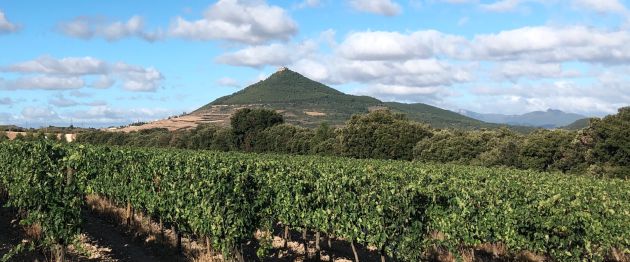
Organic rise lifts Spain's export potential
The number of organic wine producers in Spain jumped by 10% in 2018 to 1,033 up from 939 in 2017, new government figures show.
Catalonia, Valencia and Andalucia accounted for the biggest growth in organic wine producers last year.
Having grown more than tenfold, from 11,841ha in 2001 to more than 113,000ha in 2018, Spain is the EU country with the largest organic vineyard area.
However, organic vineyards in Spain represent less than 12% of the country’s total vineyard area – a similar percentage share to that of France and Italy.
In a bid to drive-up exports, Spain is increasingly focusing on organic and biodynamic wines.
Spanish Organic Wines (SOW), an association created in 2014 which facilitates wines exports for 38 producers, said the majority of Spain’s organic wines are now exported with domestic consumption of these wines lagging behind international demand for them.
In a nod to the growing trend, Barcelona Wine Week - a new major wine fair to be held 3rd to 6th February next year - is dedicating space to organic and biodynamic wines.
Spain has been looking to increase export prices, but the country’s wines continue to provide value compared to France and Italy.
Iñigo Crespo, general secretary of Premios Eco-Vino, an organic wine contest, says price differences between many organic and conventional wines are minimal.
“You can now pick up a good biodynamic wine from Spain for €2.5 ex-cellar a bottle,” said a Scandinavian wine importer at the Five Bio organic wine event held in Navarra in September.
“Spain is an importer’s paradise," he added.
Wine importers from Ireland, China, the US, Kazakhstan, Slovakia, Scandinavia, Germany, Poland, The Netherlands and Switzerland attended Five Bio.
The event showcased a broad range of wines and prices and a myriad of styles priced from under €3 to beyond €10 ex-cellar.
There are now 25 organic producers in Navarra.
Un-oaked wines including the simple, but structured zero added sulphites Tempranillo from Bodegas Lezaun and the earthy, Garnatxa-led, Le Naturel from Bodegas Aroa, show purity of fruit.
Producers’ Bagordi, Quaderna Via and Navarrsotillo have released new fruit-driven and aged organic and biodynamic wines.
The Five Bio event did not specifically profile Garnatxa wines from Navarra, but it did showcase emerging organic and biodynamic wines from across the country.
In Catalonia, the number of organic producers jumped by 17.5% in 2018 to 241 up from 205 in 2017. In Valencia, which is home to producers Vegalfaro and Mustiguillo, the number of organic wine producers increased by 16.5% to 126 producers up from 108 in 2017.
The biggest increase last year however was in Andalucia where this figure increased by 21% from 79 in 2017 to 96 organic producers in 2018.
In Castilla La Mancha, the number of organic producers fell by 3.1% last year to 193, but Manchuela DO has become a compelling source of Spanish reds.






